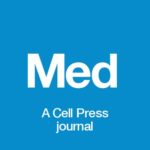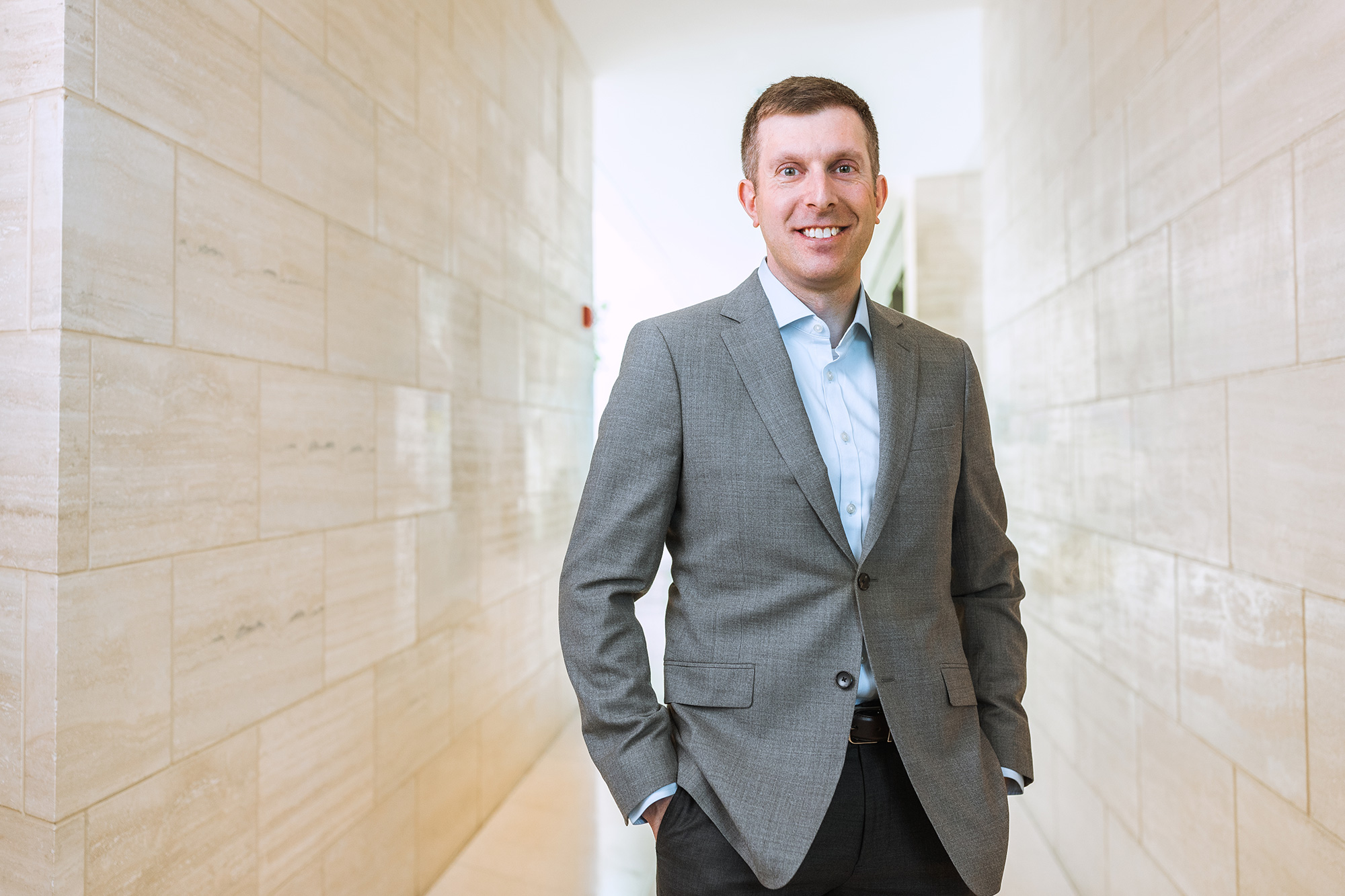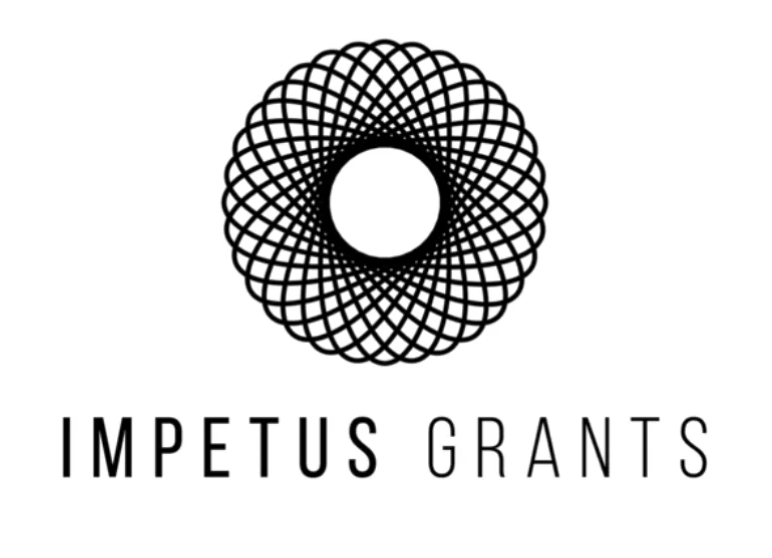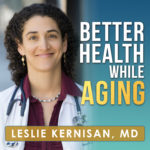NEWMAN LAB
Lab focus
Understanding how cellular metabolism interacts with the genes and pathways that regulate aging has led to many of the potential interventions now being investigated to promote healthspan. Exercise, fasting, and dietary restriction all work to promote health by activating specific cellular signaling pathways. Many of these signaling pathways involve ordinary cellular metabolites like acetyl-CoA and NAD, which have “secret” lives regulating enzymes and genes. The Newman lab focuses on an emerging signaling metabolite, the ketone body beta-hydroxybutyrate, and the roles it may have in responding to stressors and regulating healthspan.
Ketone bodies are the energy currency that allows the body’s cells to utilize fats for fuel. They are made normally in the liver from fats whenever carbohydrates are scarce, as when fasting or exercising. Ketone bodies are to fats what glucose is to carbohydrates. But beta-hydroxybutyrate has signaling activities as well, including regulating gene expression, modulating inflammation, and controlling metabolism by inhibiting enzymes, binding to proteins, and activating receptors. We have found that long-term exposure to ketone bodies using a ketogenic diet can extend the healthy lifespan of normal mice and, in particular, protect the aging brain. We seek a mechanistic understanding of how ketone bodies might work in an aging mammal to promote health, particularly in age-related memory decline and Alzheimer’s disease. Our goal is to develop targeted therapies that might enhance the resilience of older adults to diseases like Alzheimer’s and stresses like hospitalization.
Why it matters
The translation of geroscience into clinical practice has great potential to improve the lives of older adults. We already know that the best way to treat the complex medical problems of older adults is through the systematic, individualized geriatric medicine approach of comprehensive assessments and multidomain interventions. Interventions developed from geroscience usually act on multiple aging-related cellular pathways, like how the signaling activities of ketone bodies affect gene expression, inflammation, and metabolism. These interventions may hold great promise for treating complex geriatric syndromes like frailty, multimorbidity, and delirium that affect the health and independence of millions of older adults.
As a physician-scientist, working on interventions that act on multiple age-related cellular pathways is particularly rewarding. This may be the best way to address the complex geriatric syndromes that affect patients.
John Newman, MD, PhD
CENTER DETAILS
John Newman, MD, PhD, is an assistant professor at the Buck Institute for Research on Aging and in the Division of Geriatrics at University of California San Francisco (UCSF). His career goal is to translate our expanding understanding of aging biology to improve the care and help maintain the independence of older adults. His research at the Buck Institute studies the molecular details of how diet and fasting regulate the genes and pathways that in turn control aging, focusing on the ketone body beta-hydroxybutyrate and how its molecular signaling activities involving epigenetics and inflammation regulate aging and memory in mice.
Dr. Newman is also a geriatrician who cares for hospitalized older adults at UCSF and the San Francisco VA Medical Center, focusing on preserving mobility and preventing delirium. His undergraduate education was at Yale University, with a BS/MS in molecular biophysics and biochemistry that included studying growth factor signaling in the roundworm C. elegans. He completed an MD/PhD at the University of Washington, where his graduate work studies focused on the progeroid Cockayne syndrome with Dr. Alan Weiner. While at UW, he developed new bioinformatics tools for the analysis of patterns in gene expression data. He then completed a residency in internal medicine and fellowship training in geriatric medicine at UCSF. He is an National Institute on Aging Beeson Scholar.
Dr. Newman is a native of Long Island, New York, and a lifelong Mets fan. He has lived in San Francisco since 2008. He enjoys playing volleyball, watching baseball, exploring the natural beauty of the Bay Area, and having fun food experiences.
-
 Thelma Y. García, PhD Senior Scientific & Administrative Laboratory Manager and Advisor
Thelma Y. García, PhD Senior Scientific & Administrative Laboratory Manager and AdvisorDr. Thelma Garcia is the Newman Lab Senior Scientific & Administrative Laboratory Manager and Advisor. Her prior research project involved maintaining a comprehensive database of ketone body metabolics. Thelma is primarily interested in glucose and insulin sensitivity, energy expenditure, lipid metabolism, and other potential metabolic effects of BHB and its structural analogs. She also enjoys expanding her mentoring skills and takes pride in training, supervising, and maintaining lab relationships while addressing inequities in the workplace for all historically marginalized groups. She proactively assesses the needs of the scientists and develops methods to enable the efficient functioning of the lab. Moreover, she coordinates with relevant departments and collaborating research institutions to ensure the needs of all scientists are met.
Dr. Garcia also serves as a hands-on research project manager. She assists scientists in planning and troubleshooting experiments to promote awareness and communication in the lab. As a safety lab officer, Thelma ensures full compliance, updates, and modifications of Biological User Authorizations (BUA, BSL-2), IACUC, IRB and any other permits for all projects. In the role of lab administrator, she manages capitals and budgets, resource requirements, and financial budget analysis, in addition to grant support.
She is an exemplary role model for the students of the Newman lab from starting her academic career as a first-generation college student herself and becoming an amazing and inspiring Latina leader for the team. She is also deeply invested in using best practices to increase student learning, reduce barriers and close the opportunity gap. She believes that everyone can be a capable STEM learner. Her passion and calling for equity in education through research in science is her engine. She attended Santa Rosa Junior College, Sonoma State University, and later completed doctoral studies in Chemistry at UC Davis. As a APHL-CDC/NCEH Environmental Health Fellow postdoctoral fellow, her focus was in human biochemistry/toxicology.TGarcia@buckinstitute.org
-
 Laura Alexander Clinical Research Nurse
Laura Alexander Clinical Research NurseLaura grew up in the Chicago area and attended Northern Illinois University where she received her Bachelors in Nursing. She is a registered nurse with 40+ years experience, fifteen of those in management. Her most recent position was Director of Nursing at a long term care facility where she fell in love with her elderly patients and became a strong advocate for the elderly population. She has started her own business as a medical foot care specialist for seniors. Laura is new to research and is excited to learn all she can at The Buck. She has lived in San Rafael with her husband, Jon since 1987. She has four grown sons, three daughters-in-law and three grandchildren. Her outside interests include outrigger canoeing, camping, baking, photography and writing and she is always looking for a new adventure.
LAlexander@buckinstitute.org
-
 Kirsten Chui PhD Candidate, USC-Buck Biology of Aging Program
Kirsten Chui PhD Candidate, USC-Buck Biology of Aging ProgramKirsten earned her B.S. in Chemical Biology from the University of California, Berkeley. Prior to joining the University of Southern California-Buck Biology of Aging PhD program, she worked on ameliorating age-related cognitive decline and understanding muscle stem cells and muscle regeneration under the mentorship of Dr. Saul Villeda and Dr. Andrew Brack respectively at the University of California, San Francisco. In the Newman lab, she will be studying the role of NAD+ (a key metabolite and signaling molecule in the body) in aging and age-related diseases. Outside of the lab, she is a coffee enthusiast and a serious home cook/baker. She also loves travelling and playing board games.
KChui@buckinstitute.org
-
 Ester Hernandez Martinez Bilingual Clinical Researcher Associate
Ester Hernandez Martinez Bilingual Clinical Researcher AssociateEster was born in Mexico and raised in Fresno, California. Ester completed her B.S. in biochemistry at Sonoma State University in 2020. When she was 18, she began working as a certified nurse assistant in long-term care facilities. During college she worked as a caregiver and nursing assistant at her community hospital. Her experience with vulnerable patients such as those with Alzheimer's and dementia has inspired her to pursue a medical career in the future. Additionally, she worked for LGC Biosearch Technologies for two years as a member of the purification team. During her free time, Ester enjoys hiking the mountains, cooking and experimenting in the kitchen, exploring coffee shops, taking photographs, and spending time with her sisters.
EHernandez@buckinstitute.org
-
 Sara LaHue, MD Visiting Scientist
Sara LaHue, MD Visiting ScientistDr. Sara LaHue is a neurologist who cares for patients in the emergency department or hospital. She has expertise in a broad range of neurologic disorders, including neurologic emergencies that require active management in the intensive care unit. In her research, LaHue studies delirium, a common complication of hospitalization characterized by confusion and inattention that can lead to a variety of complications. She is particularly interested in the intersection between delirium, cognitive health and aging. LaHue is also passionate about leading quality improvement initiatives, especially those that enrich the care received by hospitalized patients or enhance trainee education. LaHue earned her medical degree and completed a neurology residency at UCSF, where she served as chief resident. She also completed a neurohospitalist fellowship at UCSF.
-
 Sidharth S. Madhavan USC/Buck Institute Biology of Aging PhD Program
Sidharth S. Madhavan USC/Buck Institute Biology of Aging PhD ProgramSid is a USC-Buck Ph.D. fellow in the Newman Lab. In 2019, he completed a B.S. in Clinical Neuroscience with honors at Virginia Tech. As an undergraduate, he researched structural and biochemical properties of tau proteins, specifically relating to clinical mutations affecting aggregation. As a Ph.D. fellow in the Newman Lab (2020), he will build on his background, investigating the propensity for small energetic metabolites to modulate proteostasis in Alzheimer’s disease.
When he isn’t at the bench, Sid loves being outdoors. He has hiked most of the Appalachian Trail in southwest Virginia and enjoys the accessibility to backcountry hiking out west. Sid also enjoys running, cooking new recipes, falling asleep in his hammock, and teaching himself bluegrass flatpicking.SMadhavan@buckinstitute.org
-
 Nikki Moreno Research Associate
Nikki Moreno Research AssociateNikki completed her B.S in genetics and genomics at University of California, Davis as a transfer, re-entry student from College of the Desert in Indio, CA. Over the past 10 years in higher education, she has had a diverse set of interests that followed the path from chemistry, biology, biogeochemistry, all the way to bioinformatics. During this time, she also strengthened her identity within STEM as a Latinx/Chicanx female and became a tutor in chemistry, biology, mathematics and physics. This would later transform just before the start of the COVID-19 lockdown into a Teaching Assistant, Research Aid and Peer Mentor for the Genomics Education Partnership(GEP), an organization focused on implementing Curriculum-based Undergraduate Research Experiences(CUREs) within community colleges and universities across the United States and Puerto Rico. Her research experiences have been diverse with a focus on exploration and development within STEM. While at College of the Desert, she participated in preliminary trails of the GEP curricula by using comparative genomics between Drosophila melanogaster and Drosophila mojavensis to investigate specific genes within the Insulin Pathway. At UC Davis, she focused on Carbon and Nitrogen sequestering models in agriculture soil with the Department of Land, Air, & Water Resources and deepening her knowledge of logistics and literature within science through mentorship with UC Davis Faculty in the Genome Center and Department of Molecular and Cell Biology. Her current Research Associate position within the Newman Lab will have major themes of bioinformatics and advanced wet-lab approaches with mouse models, in conjunction with professional development. She aims to contribute to and develop her own research alongside Drs. John Newman and Thelma Garcia in the biomedical arena of aging related diseases, particularly Delirium.
nmoreno@buckinstitute.org
-
 Mitsunori Nomura, PhD Research Scientist
Mitsunori Nomura, PhD Research ScientistDr. Mitsunori Nomura is a Research Scientist in the Newman lab. His project involves studying how the ketone body beta-hydroxybutyrate (BHB), which is made in the liver by the fatty acid oxidation (FAO) during fasting, ketogenic diet feeding, and exercise, affects the aging brain and age-related diseases. He will use ketone body compounds (BHB derivatives), diet interventions, and genetic modifications in both cells and rodent models to understand the mechanistic effects of ketone bodies on memory and other phenotypes in normal aging and Alzheimer’s disease models. In particular, Dr. Nomura’s research will focus on the role of BHB in the metabolic regulation of immune cells, such as macrophages and microglia, resident macrophages in the brain.
Dr. Nomura’s doctoral studies at the École Polytechnique fédérale de Lausanne (EPFL) focused on studies of how bile acid signaling shapes macrophage function in metabolic diseases. As a postdoctoral fellow at the National Institutes of Health (NIH), his focus was on understanding the role of macrophage FAO in metabolism.
Dr. Nomura is originally from Japan and loves physical exercise and hopes to run the Bridge to Bridge marathon sometime in 2022. If you see a man running up the Buck Institute’s steep hillside, the guy is likely Mitsu.MNomura@buckinstitute.org
-
 Chatura Senadheera Clinical Project Manager
Chatura Senadheera Clinical Project ManagerChatura is a Clinical Research Associate working on the Buck Clinical Unit set up to carry out research on human volunteers. He received his B.S in biotechnology and M.S in molecular life sciences research from Kings College London in the UK and a Diploma in clinical pharmacology practice from the University of West London. He has worked in microbiology laboratory at Kings College London on characterizing antibiotic profiles in mobile genetic elements as well as in a molecular biology laboratory in the Department of Virology in the University of Cambridge where he worked on RNA virus translation mechanisms. He has worked in the field of clinical research for over a decade at a Clinical Research Organization (CRO) in London, Hammersmith Medicines Research, which specialized in early phase (phase I & II) clinical trials of study drugs for pharmaceutical and biotechnology companies worldwide. When he is not working, he will be found cooking, reading and exploring his local area for foodie hidden gems.
csenadheera@buckinstitute.org
-
 Wendie Silverman-Martin Clinical Research Nurse
Wendie Silverman-Martin Clinical Research Nursewsilvermanmartin@buckinstitute.org
-
 Elizabeth Stephens Clinical Research Associate
Elizabeth Stephens Clinical Research AssociateLiz completed her B.S. in Microbiology and Immunology from the University of Nevada, Reno in 2023. She also earned minors in Molecular Biochemistry and Philosophy with an emphasis in Ethics, Law, and Politics. Liz has fostered a passion for improving the lives of older adults, bringing 5 years of experience as a Certified Nursing Assistant working in long term, post-acute, and acute care. When she isn't working, Liz enjoys spending time with her cats, Gizmo and Miranda, baking, playing the piano, and exploring Northern California.
EStephens@buckinstitute.org
Research and Administrative Lab Manager
TGarcia@buckinstitute.org
Phone: 415-209-2077
-
S. R.Stephanie Roa Diaz Research Associate
-
H. K.Ha-Na Kim VIsiting Scientist
-
G. A.Gabriela Alvarez Azanedo Research Associate
Gabriela graduated from California State University, Northridge in 2017 with a B.A. in biology. She recently completed her M.S. in cell and molecular biology at San Francisco State University and will be joining the Newman Lab as Research Associate. Her project will be to uncover possible biomarkers for delirium to develop pharmacological treatments. In addition, Gabriela will be conducting clinical research with patients who are susceptible to delirium in collaboration with UCSF. In the future, Gabriela aspires to earn an M.D./Ph.D. degree and make contributions to the field of regenerative medicine by designing therapies that can treat degenerative diseases that mainly afflict older adults.
-
L. S.Lexi Straube Lab Technician
Lexi began in the Newman Lab as an intern in 2018. After one year of rigorous apprentice work, she was hired as a lab technician. She earned two associate degrees from the Santa Rosa Junior College in biology and natural sciences. Lexi transferred to Stanford University in 2020 and graduated in 2023 with a Human Biology major with a concentration in Neurobiology, Behavior, and Health. She is looking into medical school. Her work in the Newman lab involved exploring the potential of beta-hydroxybutyrate (BHB) and its structural analogs as signaling metabolites. Lexi investigated BHB’s relationship with delirium-associated energy deficits and metabolic dysfunction, in addition to, age-related disease. In her spare time, she enjoys outdoor endeavors, traveling, burying her head into textbooks (all but physics), and playing card/board games with friends and family.
-
T. B.Thanh Blade Intern
Thanh Blade was a Research Associate in the Newman Lab at the Buck Institute who initially started as an intern. She obtained a Bachelor of Science in biochemistry from Sonoma State University (Spring 2019). Her most recent research interest incorporates ketogenic diet metabolism. Her goal in life is to love what she does and to do what she loves. During her spare time, Thanh loves sharing food and walking or hiking with friends and family.
-
W. G.Wyatt Gray Research Associate
Wyatt Gray started in the Newman Lab at the Buck Institute for Research on Aging as an intern in 2018. In 2019, he was hired as a lab technician and later promoted to research associate. He completed associate’s degrees in biology, chemistry, and natural sciences from the Santa Rosa Junior College. He later transferred to UCLA in 2022 to finish his degree. His work in the Newman lab centers around rodent research work and involved performing various diet studies and behavioral assays in mouse models of disease and aging. He presented in several conferences and obtained ISTAART PIA award, and the AGS Presidential Best Abstract award among others. In the lab, he was also involved in testing various ketogenic interventions to help prevent or mitigate cognitive decline in an LPS-induced delirium mouse model and research into how a ketogenic diet modulates the immune response in the same mouse model.
-
D. D.Diego Diaz Research Associate
Diego began at the Newman Lab as an intern and finished in 2019 as a Lab Associate. He earned his bachelors degree in Biology with a double minor in Chemistry and Forensic Studies from San Jose State University (2021) and then joined Genentech as a research associate in 2021.
-
M. F.Megan Forgie Intern
Megan joined the Newman lab in January 2021 as a lab intern and worked alongside other members until July 2021. She left the lab to attend Western University’s College of Osteopathic Medicine of the Pacific to pursue a career in preventive and lifestyle medicine. She is passionate about nutrition, healthy living/aging, and regenerative agriculture and spends her spare time riding horses, hiking with her dog, and gardening.
-
O. P.Oishika Panda, Ph.D. Postdoctoral Research Fellow
Dr. Panda joined the Buck in February 2018, after her Ph.D. in chemistry and chemical biology from Cornell University, Ithaca, New York. Having grown up in hot and humid Kolkata, India, and done her graduate studies in snowy-for-8-months-of-the-year Upstate New York, she has mixed feelings about the Bay Area weather! Dr. Panda is interested in applying her analytical chemistry skills to study the regulation of posttranslational acylations of proteins by endogenous metabolites, and their signaling functions. In her spare time, she enjoys trying out new cheesecake recipes, playing with cats and dogs, and discussing Harry Potter and Middle Earth trivia with whoever wants to listen!
Selected Publications
- Models and Studies of Aging: Executive Summary of a Report from the U13 Conference Series. Hurria A, Carpenter CR, McFarland F, Lundebjerg NE, de Cabo R, Ferrucci L, Studenski SA, Barzilai N, Briggs JP, Ix JH, Kitzman DW, Kuchel GA, Musi N, Newman JC, Rando TA, Smith AK, Walston JD, Kirkland JL, Yung R. Journal of the American Geriatrics Society. 2019; 67(3):428-433. NIHMSID: NIHMS1013523 PubMed [journal]PMID: 30693953 PMCID: PMC6403012
- Newman, J. C., Covarrubias, A. J., Zhao, M., Yu, X., Gut, P., Ng, C. P., Huang, Y., Haldar, S., Verdin, E. (2017). Ketogenic diet reduces mid-life mortality and improves memory in aging mice. Cell Metab, 26(3), 547–57, e8.
- Tognini, P., Murakami, M., Liu, Y., Eckle-Mahan, K. L., Newman, J. C., Verdin, E., Baldi, P., Sassone-Corsi, P. (2017). Distinct circadian signatures in liver and gut clocks revealed by ketogenic diet. Cell Metab, 26(3), 523–538, e5.
- Newman, J. C., Verdin, E. (2017). Beta-hydroxybutyrate: A signaling molecule. Ann Rev Nutr, 37, 51–76.
- Newman, J. C., Kroll, F., Ulrich, S., Palop, J. J., Verdin, E. (2017 May 9).Ketogenic diet or BHB improves epileptiform spikes, memory, survival in Alzheimer’s model. bioRxiv, 136226. DOI: https://doi.org/10.1101/136226
- Newman, J. C., Verdin, E. Ketone bodies as signaling metabolites. (2014). Trends Endocrinol Metab, 25(1), 42–52.
- Shimazu ,T., Hirschey, M. D., Newman, J., He, W., Shirakawa, K., Le Moan, N., Grueter, C. A., Lim, H., Saunders, L. R., Stevens R. D., Newgard, C. B., Farese, R. V., de Cabo, R., Ulrich, S., Akassoglou, K., Verdin, E. (2013). Suppression of oxidative stress by b-hydroxybutyrate, an endogenous histone deacetylase inhibitor. Science, 339(6116), 211–4.
- Newman, J. C.*, Justice, J.*, Miller, J. D.*, Hashmi, S. K., Halter, J., Austad, S. N., Barzilai, N., Kirkland, J. L. (2016). Frameworks for proof-of-concept clinical trials of interventions that target fundamental aging processes. J Gerontol A Biol Sci Med Sci, 71(11), 1415-1423.
- Newman, J. C.*, Milman, S.*, Hashmi, S. K., Austad, S. N., Kirkland, J. L., Halter, J. B., Barzilai, N. (2016). Strategies and challenges in clinical trials targeting human aging. J Gerontol A Biol Sci Med Sci, 71(11), 1424–1434.
- Newman, J. C. (2015). Copyright and bedside cognitive testing: Why we need alternatives to the Mini-Mental State Examination. JAMA Intern Med, 175(9), 1459–60.
- Feldman, R., Newman, J. (2013). Copyright at the bedside: Should we stop the spread? Stan Tech L Rev, 16, 623.
- Newman, J. C., Feldman, R. (2011). Copyright and open access at the bedside. New Eng J Med, 365(26), 2447–9.
Dr. Newman’s Pubmed link
IN THE NEWS

Investigating Ketone Bodies as Immunometabolic Countermeasures against Respiratory Viral Infections




















